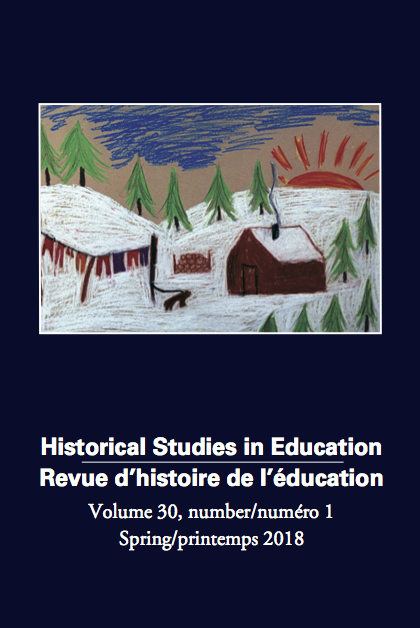The Writing of Women into Canadian Educational History in English Canada and Francophone Quebec, 1970 to 1995
Résumé
The 1970 Report of the Royal Commission on the Status of Women of Canada represents the first official federal document to examine the situation of women in Canadian education through a feminist lens. It paid close attention to education, claiming that “whenever women are denied access to education, they cannot be said to have equality.” Feminist historians participated in this transformative movement in response to an increasing demand to make women visible; the new social history, which developed novel methodologies in its quest to recover the past from the bottom up, assisted them in their efforts to develop the field of women’s history across Canada. Our article examines the importance of feminist associations, publishing houses, journals, and awards in supporting the development of scholarship on women and education. We follow that overview with comments about the earliest scholars working in this field, concentrating first on those in English Canada and then moving to the history of the field in French Canada.
Résumé
Le Rapport de la Commission royale d’enquête sur la situation de la femme au Canada de 1970 constitue le premier document fédéral officiel à étudier la situation des femmes dans l’éducation canadienne dans une perspective féministe. Il a accordé une attention particulière à l’éducation, affirmant que lorsqu’« on refuse à une femme la possibilité de faire les mêmes études que l’homme, on ne peut dire qu’elle bénéficie de l’égalité ». Les historiennes et historiens, en majorité des chercheuses féministes, ont participé à ce mouvement de transformation en réponse à la demande croissante pour rendre les femmes visibles. Ayant contribué à développer de nouvelles méthodologies cherchant à reconstituer le passé à partir d’une approche « du bas vers le haut », la nouvelle histoire sociale leur a permis de développer le champ de l’histoire des femmes à travers le Canada. Notre article examine l’importance des associations féministes, des maisons d’édition, des revues et des prix comme soutien au développement de la recherche sur les femmes et l’éducation. Dans un second temps, nous examinons les figures pionnières de la recherche dans ce domaine, en nous concentrant d’abord sur les personnalités importantes du Canada anglais, avant de poursuivre avec l’histoire de ce champ de recherche au Canada français.
